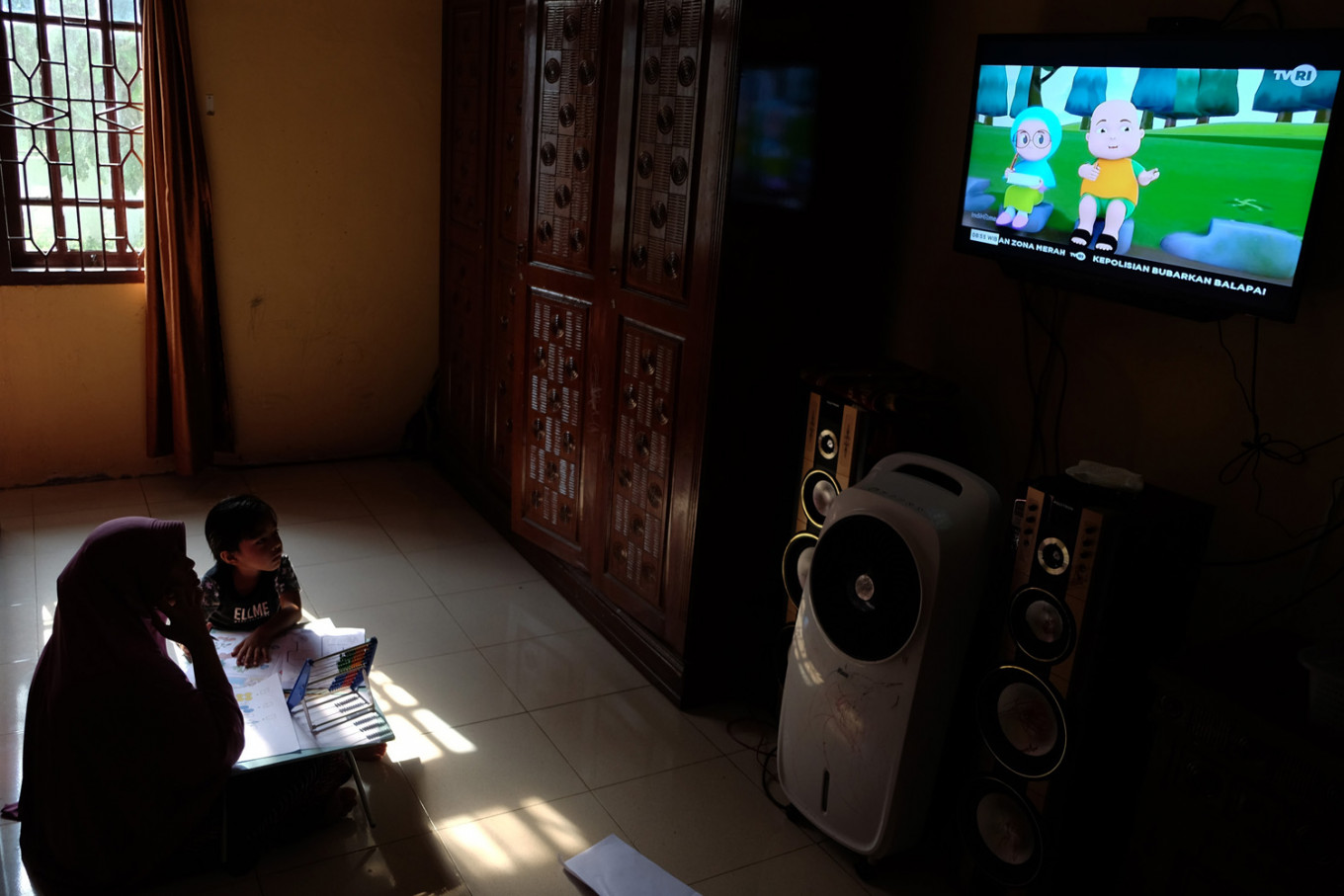Popular Reads
Top Results
Can't find what you're looking for?
View all search resultsPopular Reads
Top Results
Can't find what you're looking for?
View all search resultsCOVID-19: Central Java students demand 'creativity' amid boredom of remote studying
Amid the COVID-19 pandemic, teachers have suddenly found themselves under constant pressure to become tech-savvy as the study-from-home policy currently in place requires knowledge about the ins and outs of digital communication platforms – largely uncharted territory, especially for older members of the faculty who have been accustomed to markers and whiteboards.
Change text size
Gift Premium Articles
to Anyone
U
nder normal circumstances, teachers usually have the authority to decide how to deliver their lessons on various subjects to their students in the classroom.
But the current COVID-19 pandemic has overhauled the old study process as teachers now find themselves under constant pressure to become tech-savvy with the current study-from-home policy. The scheme requires knowledge about the ins and outs of digital communication platforms – largely uncharted territory, especially for older members of the faculty who have been accustomed to markers and whiteboards.
In Semarang, Central Java, some students have taken it upon themselves to spice up their remote learning experience, claiming that their teachers have failed to fully adjust to the all-digital reality amid the ongoing public health crisis.
Amelia Adiputri Diansari, a student at SMA 1 state high school in Sragen, said the apparent lack of digital literacy among teachers had become a major issue as the entire classroom moved into the virtual space as a result of physical-distancing measures.
“Many teachers, especially the senior ones, are tech-illiterate. Since the study-from-home policy was issued, these teachers have had difficulty adjusting [to digital platforms],” Amelia said on Wednesday.
Amelia, who serves as the head of Central Java Children’s Forum, was among the students from over 35 cities and regencies across the province who were invited to share their remote-learning experiences with Central Java Governor Ganjar Pranowo on Wednesday.
The 150-minute online forum, which was held virtually via video conference, aimed to address issues that students have experienced since they started studying from home.
Ganjar encouraged teachers to be more creative in designing learning modules to spark students’ interest.
“The point is that [students] need [video conferences]. They need to see their teachers’ faces. Teachers may even assign students projects that they like, such as vlogs,” Ganjar said.
According to a recent online survey conducted by the Central Java Children’s Forum in collaboration with the Central Java Child Protection and Empowerment and Population Control Agency, the majority of students are “bored” by the current learning method, Amelia said.
“The survey found that 80 percent of students were bored,” she said.
She went on to say that, in an unusual display of role-reversal, students have often initiated video conferences themselves to maintain interactivity in the classroom.
Read also: Studying from home: Seven online learning platforms for students
In a bid to improve the remote-learning experience amid the COVID-19 pandemic, public television broadcaster TVRI regularly airs a full-day education program called Belajar dari Rumah (Study from Home) in cooperation with the Education and Culture Ministry.
The programs, for all levels of education from pre-kindergarten to high school, focus on developing student literacy, numeracy and character and life skills.
Education and Culture Minister Nadiem Makarim said the program was the ministry’s effort to help students who faced hindrances in remote internet learning.
"This program can help students who have limited internet access for economic or geographic reasons," Nadiem said. (rfa)










